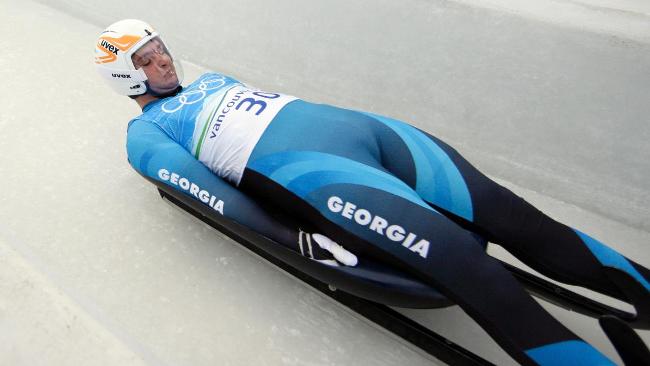Dr. Rhonda Cohen gives her expert view on CNN World Sport about downhill skier Lindsey Vohn
 Thursday, October 17, 2013 at 6:59PM
Thursday, October 17, 2013 at 6:59PM Extract Below from link
But what is it about skiers that enable them to overcome such mental battles. Is it genetic?
Dr Rhonda Cohen manages the London Sport Institute at Middlesex University and is a chartered sport and exercise psychologist whose research centers on personality, motivation, risk and reaction times especially in examining the psychology of extreme sport.
"We are all born with a genetic pattern and obviously a genetic predisposition towards certain behavior," says Cohen.
Austrian skier Hans Grugger
"When you are born with more of an anxiety trait your natural reaction would be to get anxious in a stressful situation such as a broken leg.
"However, both Lindsey and Chemmy have developed excellent coping mechanisms, pushing aside thoughts of perhaps not ever being able to be the best in your sport."
But even extreme sports starts come to a point after an injury where they think enough is enough.
As Cohen pointed out: "Some skiers do give up. I have often found the length of their career as part of an odds game -- the longer they compete or engage in the sport, the greater the chance of something serious happening."
That happened in the case of Austrian skier Hans Grugger, a World Cup winner who suffered a serious head injury in a fall in 2011.
At the age of 30, Grugger made a full recovery from those head injuries but any hopes of a return to the slopes -- at least competitively -- were curtailed by nerve damage to his right leg.
He had suffered two serious falls before, much like Alcott and Vonn, and on both occasions opted to return.
"To me, that was not a problem, crashing is a part of skiing, and crashing never gave me fear for the next time," he explained. "But this accident was different. I couldn't come back."
His comments suggest he would still be competing if given the chance but Grugger is not so sure. "I don't know as I just feel happy to have my life," he adds.
"I was told if my head injury was one centimeter to the right or left, things could have been very different."
Perhaps fortunately the mental demons of the crash do not haunt him -- he has no memory from six weeks beforehand to about six weeks afterwards.
However, before returning to the slopes in a more amateur fashion, he opted to watch back his horror fall. "It was just me and my laptop," he recalls.
"It took me a time to press play -- my finger was hovering over play for a long time. But when I watched it, it was OK. It was just like watching someone else. So when I did first ski, I was not scared."
Unlike Grugger, in retirement from the age of 30, Vonn, who turns 29 on Friday, and 31-year-old Alcott have opted to return.
Despite their crashes, they show no signs of slowing down or hanging up their skis
 cnn,
cnn,  cnn world sport,
cnn world sport,  downhill skiing,
downhill skiing,  extreme sport psychologist,
extreme sport psychologist,  extreme sport psychology,
extreme sport psychology,  grugger,
grugger,  international sport psychologist,
international sport psychologist,  lindsey vohn,
lindsey vohn,  london sport institute,
london sport institute,  middlesex university,
middlesex university,  psychology of extreme sport,
psychology of extreme sport,  vonn in
vonn in  Extreme sport,
Extreme sport,  Middlesex university,
Middlesex university,  london sport institute,
london sport institute,  lsi,
lsi,  olympics psychologist,
olympics psychologist,  skiing psychologist,
skiing psychologist,  sochi sport psycologist,
sochi sport psycologist,  winter olympics psychologist,
winter olympics psychologist,  winter olympics sport psychologist,
winter olympics sport psychologist,  winter sport psychologist
winter sport psychologist 
